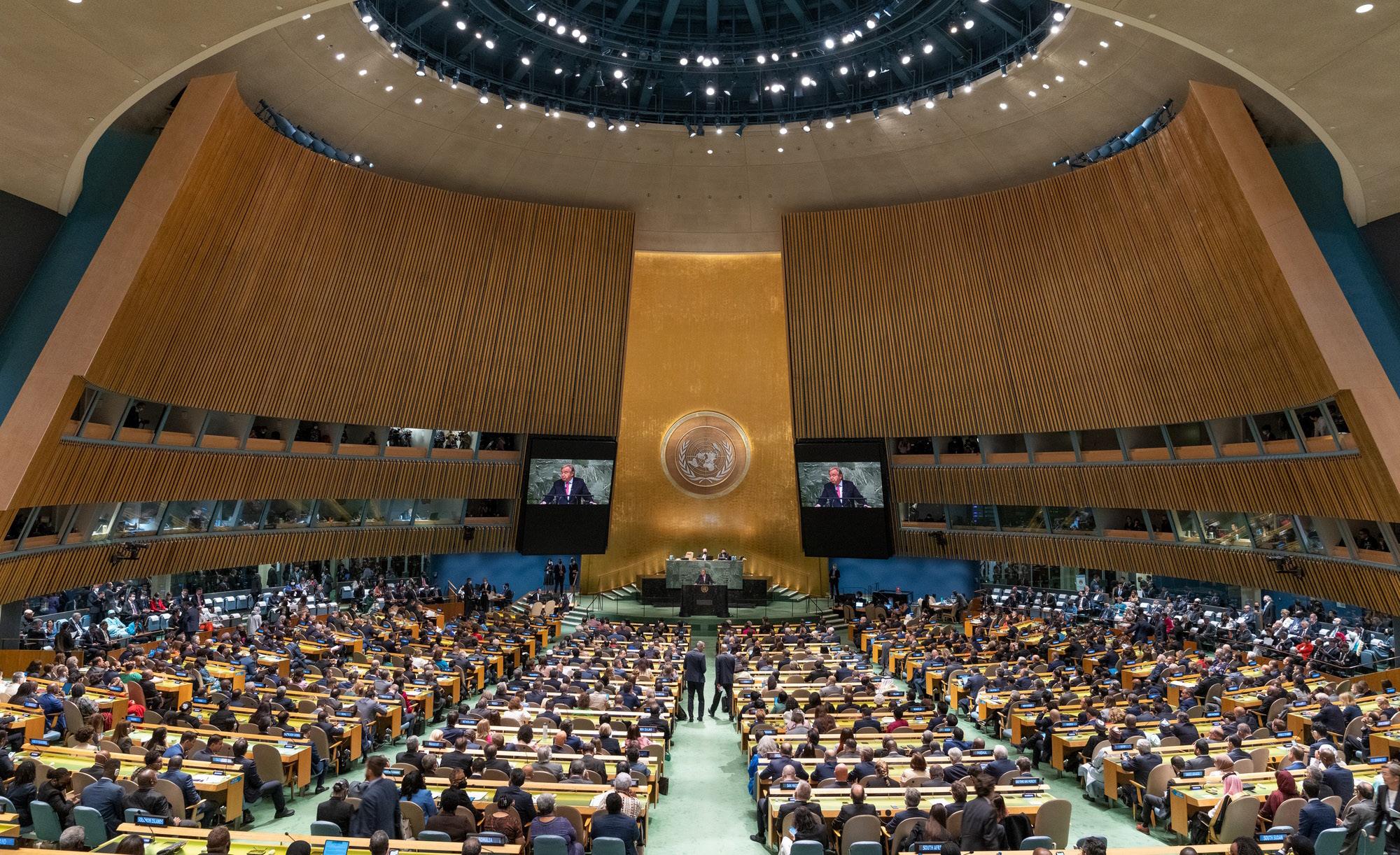
5 minute read
Shift in India’s Middle East policy apparrent
From the editor’s desk
By Rabindra Mukherjee
Condemn Hamas action before seeking UNGA vote on truce resolution
There is a major shift in the Indian Middle East policy vis-àvis the Palestine-Israel conflict. Though India has desisted from openly taking sides of either Israel or Palestine, Indian Prime Minister Narendra Modi’s first reaction to the gruesome Hamas attack on Israel saying that India stands with Israel has been perceived as India’s pro-Israel stance. But the more recent developments have put to rest any doubts about which way India seeks to align.
The fact that India abstained from voting on a UN General Assembly (UNGA) resolution backing the Palestine cause, makes the point amply clear that India is no longer averse to lending support to Israel, albeit indirectly. While India has made its stance clear politically, India has sent humanitarian aid to the people of Palestine. India’s official stance should not be misinterpreted as against the people of Palestine. India continues to engage with the Palestinian leadership, but its self interest dictates that it can no longer ignore Israel as an important ally that has always supported and assisted India in times of crisis.
In the current geopolitical scenario, where India is surrounded by foes on all sides, having friendly relations with Israel is imperative. Pakistan and China have been a perennial threat to India. With China engaging with many South Asian countries, especially Nepal and Bhutan, India feels threatened as these small countries can act against India in the event of a conflict escalating to a fullfledged war. India’s opposition to the recent UNGA resolution arises because it (UNGA) failed to condemn Hamas for its terrorist attack and the Assembly rejected an amendment supported by India that would have named the terror group. India’s stance has always been against acts of terror and terror groups anywhere in the world. This is understandable considering the fact that India has had to deal with terrorism from across the border for years. The October 7 attack by Hamas on Israel calls for harshest criticism of the terror group, and there is no logic whatsoever not to condemn its abominable acts of terror. Israel’s counter-offensive against the terror group is but natural and understandable, though the loss of innocent civilian lives, be they Palestinians or Israelis, is against the best interest of humanity.
In this context, India's Deputy Permanent Representative Yojna Patel said after the vote that the terror attacks in Israel on October 7 were shocking and deserved condemnation. She stated that the world should not be persuaded to justify terror acts, and leaving aside differences, it should adopt a zero tolerance approach to terrorists. This statement from the Indian side should make it clear that India condemns terrorism and terror attacks, irrespective of the place it emanates from. Therefore, any backing of the Palestine cause, at a time when a terror group like Hamas is purportedly trying to show that it alone represents Palestine and its cause, will amount to giving legitimacy to a terror group. There is also a need to be aware of the fact that Hamas unleashed an orgy of rapes and murders, and are still holding several Israelis as hostages. The resolution asked the member countries to vote for a truce in the Israel-Hamas conflict and provision of assistance to the people of Gaza. The resolution passed with 120 votes, while there were 14 votes against it and 45 abstentions, giving it a two-thirds majority of those present and voting. India, however, backed the amendment to the resolution moved by Canada that named Hamas and condemned its October 7 attack. But it failed to pass, getting only 88 votes, while there were 54 votes against it, with 23 abstentions.
The UNGA action came after the Security Council failed to pass four resolutions on Gaza, with one each being vetoed by Russia and the US, and two that did not get the minimum nine votes to pass. Significantly, the Assembly's resolution is only symbolic in nature, and it does not have the power to enforce it. Therefore not much should be read into how the UNGA resolution went. India’s stance has been more towards focusing on the humanitarian crisis that needs to be addressed.
Historically, India has always voted in favour of any resolution that favoured the Palestine cause, even if it meant ignoring the Israeli position. But keeping in view the changing geopolitical situation, it is apt that India should take the stance that serves its interest. Since Independence, India’s position to back only the Palestinian cause was in keeping with the notion that it will be looked upon favourably by Indian Muslims. This perspective is erroneous given the fact that Indian Muslims realize that they are a part of the Indian nation, and what is in the interest of India as a nation is also in their interest. The Palestine issue has been deliberately politicized internationally, and it is being done in India domestically as well. The Israel-Palestine conflict should not affect the psyche of Muslims in India. This is because a nation is built with the contribution of one and all, including that of the Muslims. Muslims in India are an integral part of India as a nation, which has nothing to do with India’s stance globally. If India stands with Israel, it is to fulfill its own interest. The Arab countries have always sided with and supported Pakistan during India-Pakistan wars. Israel, on the other hand, had stood with India, and even supported it when it was in a crisis situation. Israeli assistance has strengthened India’s intelligence agency R&AW. India needs the support and assistance of Israel in a world where it is difficult to discern between a friend and a foe.









